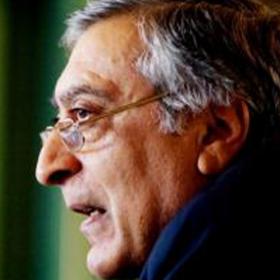
Russia Can Aid in Coping with China
Writing for India Today, Kanwal Sibal, a former foreign secretary of India and member of EWI’s board of directors, assesses the effects of the global power shift to Asia on the relationship between Russia, India and China, and how this can and should shape the Russia-India-China (RIC) dialogue.
“In theory these three countries forging a true partnership could start a new chapter in world history,” states Sibal.
But Sibal maintains that the RIC dialogue may not have as much promise as originally anticipated because “the validity of most of the premises underlying it has been shaken.” Now that the United State’s sole superpower status has waned, as a result of the wars in Iraq and Afghanistan and the 2008 financial crisis, there is not as much need for Russia, India and China to come together to balance the global power structure.
China provides the most dramatic example of the current realignment in geopolitics. As Sibal puts it: “Since the RIC dialogue began China’s economic rise has been spectacular, with its economy now overtaking Japan’s in size. China’s self-confidence has bounded and nationalist feelings are being fed at home.”
Despite its rapidly growing economy and population, Sibal believes India is in many ways the weakest member of the RIC dialogue. Though India is a member of the G20, it is not a permanent member of the Security Council, which limits its role in the RIC in key decisions on global peace and security issues.
Of the three countries, India and Russia have the most common interests—especially when it come to countering the terrorism and religious extremism that is ravaging Afghanistan and Pakistan, endangering Central Asia and even southern Russia. Even so, this bond may not prove strong enough to successfully maintain the RIC dialogue.
Sibal concludes: “The RIC dialogue was a grand idea that failed to live up to expectations because the conditions in which it was set up changed rapidly.”
Photo: "Moscow Kremlin" (CC BY-NC 2.0) by Alexey Kljatov (ChaoticMind75)

